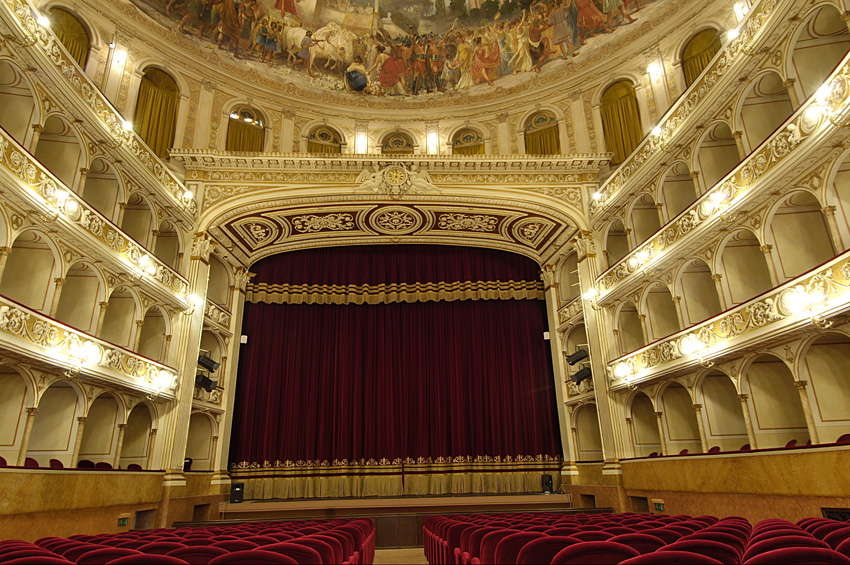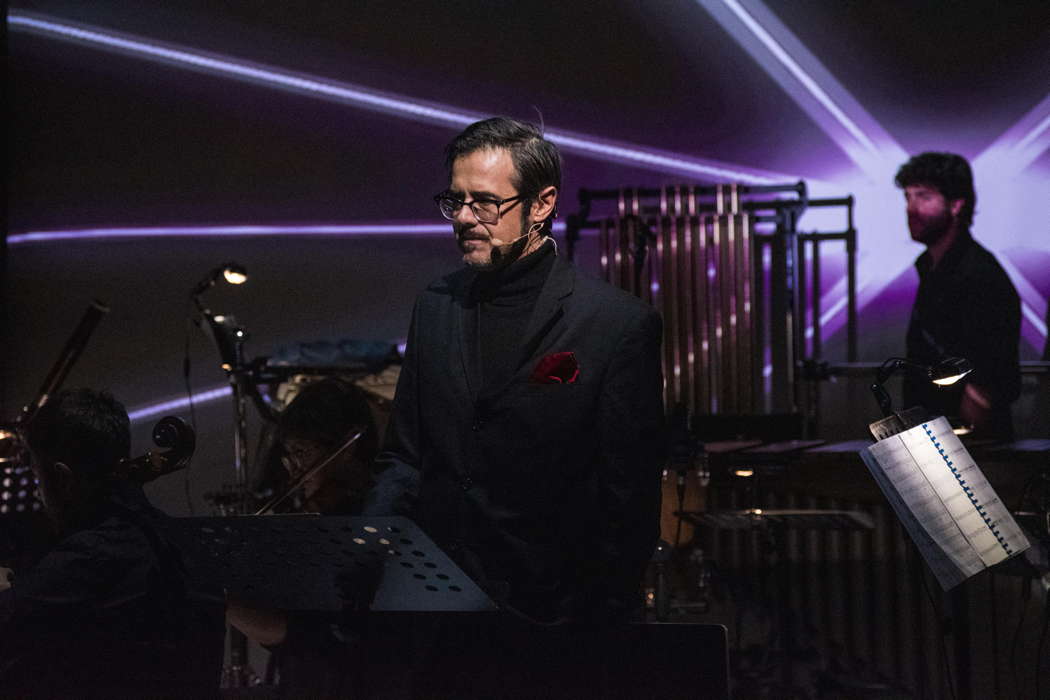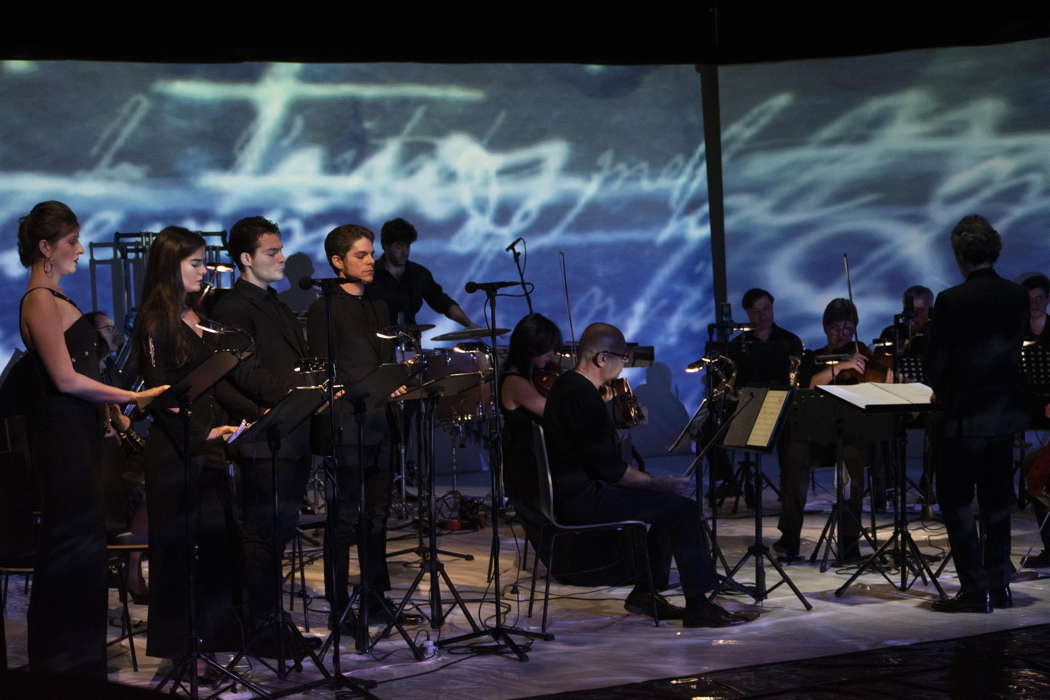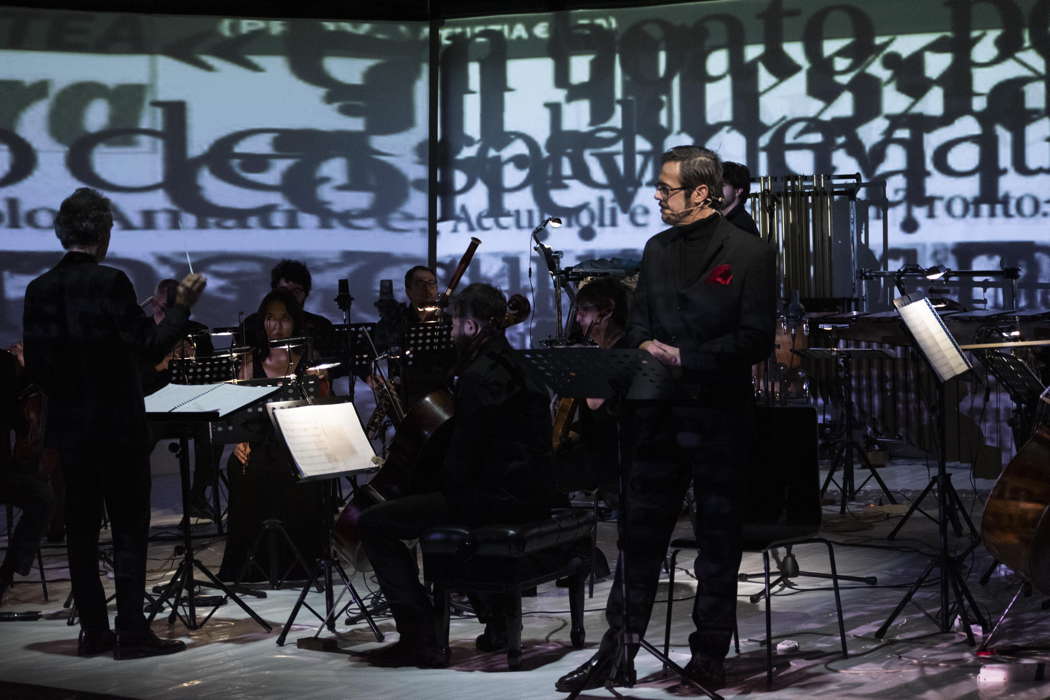- Roberta Stephen
- SWR Media Services GmbH
- Ian Stewart
- Claude Frank
- Murray Khouri
- Bacewicz: Concerto for Large Symphony Orchestra
- Juliana Niu
- Chopin: Piano Sonata No 3
 UPDATES: There's a new feature every day at Classical Music Daily. Read about the various ways we can keep in touch with you about what's happening here.
UPDATES: There's a new feature every day at Classical Music Daily. Read about the various ways we can keep in touch with you about what's happening here.
 PODCAST: Join Jenna Orkin, Maria Nockin, John Daleiden, Gerald Fenech, Julian Jacobson, Patrick Maxwell, Giuseppe Pennisi and Mike Wheeler for a fascinating fifty-minute audio only programme.
PODCAST: Join Jenna Orkin, Maria Nockin, John Daleiden, Gerald Fenech, Julian Jacobson, Patrick Maxwell, Giuseppe Pennisi and Mike Wheeler for a fascinating fifty-minute audio only programme.
With Pope Francis' Blessing
The first performance of 'L'ultima estate - Memorie di un mondo che non c'è più' by Marcello Filotei, reviewed by GIUSEPPE PENNISI
On 7 November 2021, I was in the charming nineteenth century Teatro Flavio Vespasiano of Rieti (a provincial capital North of Rome) for the world premiere of the one act (ninety minute) opera L'ultima estate - Memorie di un mondo che non c'è più by Marcello Filotei. A first performance is always of great interest, especially when further performances are already scheduled in L'Aquila, Fermo and Foligno. The production had a grant from the Ministry of Culture as a 'special project' and was sponsored by the Rieti Archbishoprics and by a local private firm.

The interior of Teatro Flavio Vespasiano in Rieti, Italy
The multifaceted Marcello Filotei is also responsible for the cultural section of the important international newspaper L'Osservatore Romano, published by the Vatican State in six languages. As a composer, he has received commissions from major institutions such as the Venice Music Biennale, the Umbrian Music Festival, the Orchestra of Toscana, the Haydn Orchestra of Trento and Bolzano, and the Tiroler Festspiele. His musical language tries to reconcile the need to overcome the current schemes with the need to offer the listener an understandable sound message, also taking advantage of the exceptional possibilities made available by new technologies; he has worked a lot on electronic music, although this is not present in this score. He is the author of both the libretto and the music of this, his first opera.
The opera is based on Marcello Filotei's novel of the same title, in which he narrates, and above all reflects on, the tragic experience gained in August 2016 with the earthquake in Central Italy, in particular in Arquata del Tronto. During that terrible night between 23 and 24 August, Filotei lost his parents and many relatives and close friends. In addition to the pain for the sudden farewell to the affections dearest to him, the circumstance marked the end of a happy stretch of his existence, a 'last summer' that represents a boundary of his life. In the novel, his mind turned to the past to collect facts and sensations now lost forever. The result is a fresco 'of a world that no longer exists' where the memories of happy summers spent in the countryside are still alive but, at the same time, it is clear that that world is irretrievably gone.
It is important to note that the novel has a preface by Pope Francis. A few days after the earthquake, the Pope visited those places and people. In the novel's foreword, the Pope's words are impressive: 'Three years have passed. I do not forget what I saw. I do not forget the pain. I do not forget the sense of community that united and unites this small people; and that Marcello Filotei recounts, marked by the pain that struck his own family'. He adds then that '... remembering does not mean cultivating nostalgia for what has been, it does not mean closing oneself in sadness and fear. In the history that continues there is, alongside nostalgia, a hope for the future. There is the gaze forward that feeds on a memory that is never resigned. This is what it is necessary to remember, not to lose one's roots. Not to let these also become rubble. To reconstruct a new history without forgetting the old one'. The opera, like the novel, has the Pope's blessing - perhaps the very first time in the history of opera theatre.
The opera does not have a real dramatic action. A 'narrator', the actor Claudio Gregori, normally nicknamed Greg, tells, through passages from the novel, about the earthquake of 2016, with a cadence in tune with the orchestra and the voices.

Claudio Gregori narrating Marcello Filotei's L'ultima estate - Memorie di un mondo che non c'è più. Photo © 2021 Simone Scatarzi Alberti
The vocal quartet of the Academy of Lyric Art of Osimo - soprano Zuzanna Klemanska, mezzo Nutza Zakaidze, tenor Alessandro Fiocchetti and bass Piersilvio De Santis - does not give life to characters as commonly understood but expresses voices of pain and memories. The quartet intones singing on words taken from the poem Sopra un bassorilievo antico sepolcrale by Giacomo Leopardi.

The vocal quartet of the Academy of Lyric Art of Osimo with the Bruno Maderna Ensemble and director Gabriele Bonolis performing Filotei's L'ultima estate. Photo © 2021 Simone Scatarzi Alberti
Among the voices are that of Filotei's sister, who re-emerged after nine hours under the rubble and, after months of treatment, came out of hospital. Then, that of the butcher, the tobacconist, the urban policeman and the other men and women of the village, as well as the sound of the water of the fountain on the square of Arquata. The orchestra provides unity and cohesion to the whole: a timbre writing, with an emphasis on counterpoint and in which the lyrical abandonments are entrusted more to the wind than, as usual, to the strings. The score is very captivating to listen to but not easy to render; the task was undoubtedly facilitated by the fact that the Bruno Maderna Ensemble and Gabriele Bonolis are long familiar with working together.

Gabriele Bonolis directingthe Bruno Maderna Ensemble with Claudio Gregori (right) performing Filotei's L'ultima estate. Photo © 2021 Simone Scatarzi Alberti
L'ultima estate is not an oratory, as one might think, but a secular 'way of the cross', organized as a long film plan-sequence in which, at each 'station', places and characters come back to life for a few moments and then disappear again. It is, therefore, eminently theatrical as rendered by the direction by Cesare Scarton. The sets by Andrea Tocchio - abstract projections in black and white - blend perfectly with the music and voices.
This was a great success. It may travel to major opera houses in Italy and abroad.
Copyright © 9 November 2021
Giuseppe Pennisi,
Rome, Italy

MORE ARTICLES ABOUT CONTEMPORARY MUSIC


